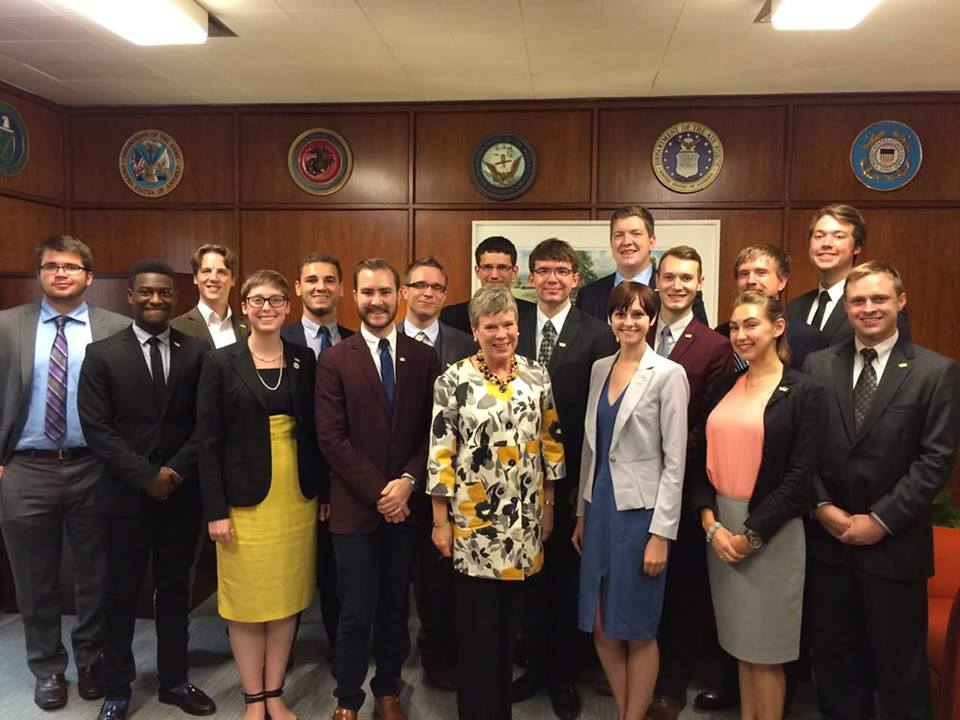
Jordan Evans (third from left) at the 2016 Nuclear Engineering Student Delegation (NESD) in Washington, D.C.
All commercial nuclear reactors in the United States use water as a coolant, a technology that is more than 50 years old. New technologies are available, but necessary research and development is needed before they can be commercialized.
Jordan Evans, graduate student in the Department of Materials Science and Engineering at Texas A&M University, recently advocated for development of advanced reactor technology when he met with lawmakers at the 2016 Nuclear Engineering Student Delegation (NESD) in Washington.
The NESD offered training on how to communicate with lawmakers to change nuclear research funding, education and growth.
Evans completed his bachelor’s and master’s in nuclear engineering from Texas A&M, and is currently pursuing a doctorate of philosophy in materials science and engineering with a focus in nuclear nanomaterials. His research is focused on the development of advanced nuclear reactor materials such as fuels, cladding and structural materials.
Evans, along with the other delegates, supported their application to the NESD by showcasing their proficiency in American politics, nuclear technology policies and communications skills.
“I have never encountered such an impressive collection of students before,” said Evans. “The delegation included a broad spectrum of nuclear backgrounds, including students studying policy (both energy and nonproliferation), nuclear medicine and, of course, energy technologies.
“In recent years, the United States has fallen behind on advanced reactor technology. Not only is my Ph.D. research on this very topic, but there is an urgent need for federal action to develop advanced reactor technologies with great haste.”
According to Evans, foreign governments and global industrial giants have been developing new technology for advanced reactors. With environmental concerns on the rise, there is a need for alternative energy sources.
“Advanced nuclear energy is a cheaper and more reliable source of energy and is on the brink of massive implementation,” said Evans. “In China’s molten salt reactor program, their test reactor will come online in 2020 with commercialization to follow. These reactors cannot melt down according to the laws of thermodynamics, and cost half the price to build and to operate in comparison to current water-cooled reactors.”
Evans focused primarily on this issue during his time with the NESD.
“We are falling behind on a transformative technology that will soon be a major asset to society,” said Evans. “It is my belief that we would benefit if we developed and owned a portion of it rather than remained dependent on foreign entities.”
The NESD is an independently-funded student organization founded in 1994 to immerse nuclear science and engineering students into political policy.
Contributing author: Haley Posey